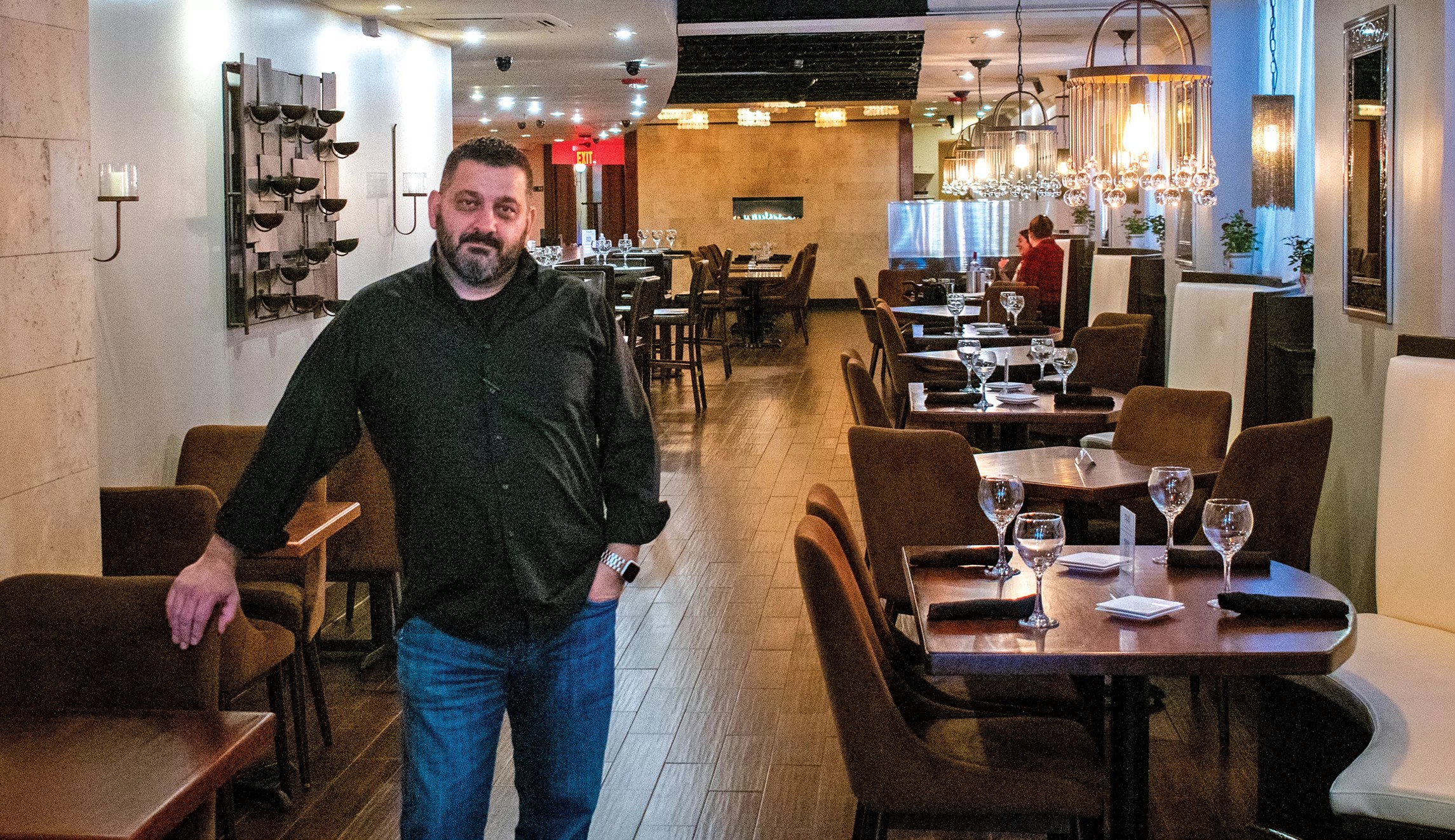The coronavirus pandemic hit the economy hard starting in March 2020. Nearly a year later, it remains a hindrance, even with more than a million people per day getting vaccinated.
The restaurant and hospitality industry has taken the brunt of the damage. For restaurant owners in the downtown area of Washington, D.C., COVID-19 created more challenges. While not as bustling as New York or Chicago, the area along K Street between 14th Street and 19th Street in the pre-pandemic era teemed with people who worked in office buildings nearby. And those people patronized the local eateries, including Mazi, a new American restaurant with a Mediterranean hook.
Just off the corner of 15th Street on K Street, the establishment sits between a Wells Fargo and Archibald’s Gentlemen’s Club. This second name will sound familiar to those following the exploits of Hunter Biden.
Mazi’s owner, Panayiotis “Yiotis” Paparistodemou, 50, emigrated from Greece to the United States in 1990 to study computer engineering. His career path shifted in 1996, and he chose the food industry, taking culinary classes and cooking and managing various restaurants before opening Mazi in December 2018.

The rise of celebrity chefs since the late 1990s provides viewers with a glamorous take on the restaurant industry. Whether it’s Ina Garten cooking at her home in the Hamptons or Guy Fieri hanging out with friends on his 290-acre ranch in California, the celebrity chefs are the exception and not the rule.
Yiotis lives in a two-bedroom apartment in Alexandria, working anywhere from 60 hours to 80 hours a week. The remodel, which took the restaurant from a place with an almost nightclub motif to a warmer, cozier atmosphere, cost $200,000. The menu features traditional Greek dishes, with appetizers such as zucchini and feta croquettes (kolokythokeftedes) and saganaki, a pan-seared cheese. Entrees include pork souvlaki and Mediterranean sea bass. Still, diners can also get everything from fried calamari to a New York strip steak to fish and chips. The restaurant features a selection of over two dozen white and red wines, as well as rose, sparkling wine, beer, cocktails, and liquor.
Before meals get sold, that all comes at a cost. For Yiotis to cover his monthly expenses, including rent, he must take in anywhere from $55,000 to $60,000. And unlike residential rents, restaurant owners are at the mercy of their landlords as the government hasn’t addressed commercial rentals.
In January 2020, Yiotis’s business partner told him that the business grew by 300% from the year before when the restaurant first opened. Then COVID-19 hit. On March 16, Mayor Muriel Bowser ordered all restaurants and bars to shut down, giving them the option for takeout and delivery. In June, restaurants opened with a capacity limit of 50%. That lifeline didn’t help much as Mazi, which is just blocks from the White House, suffered from the result of the Black Lives Matter protests. As streets were closed off and violence took hold, people canceled reservations, and the minimal foot traffic disappeared.
And then, just as business began to pick up when the Black Lives Matter protests died down, MAGA protests started, sparking more cancellations. As the postelection fervor dissipated (until Jan. 6), in December, Bowser once again ordered all restaurants to cease indoor dining. Mazi has a small outdoor area, but with only several tables and cold weather keeping people indoors, he was forced to shut down until she lifted the order at the end of January.
Even though indoor dining resumed, business is still slow. Capacity is limited to 25%, and Bowser has not indicated when it will increase. That allows for the restaurant to operate with a maximum of 40 customers at one time. As a result, the restaurant, which once employed 28 people, now only employs seven. Yiotis can only afford one person in the kitchen (and he even works the kitchen on Saturday) and one server working at a time.
However, what hurts the business more than anything else is the lack of people working downtown. “That building across the street … when the sun goes down, it is entirely dark. At most, I will see 3 to 4 offices lit up,” Yiotis said. Other offices nearby, including the Washington Examiner, remain empty. Therefore, there are no business lunches, client dinners, or customers stopping by after work for a few drinks and a quick bite before boarding a bus or the train home.
In residential areas of the city, people will go to their local restaurants, something Yiotis understands. “No one wants to come downtown. There’s nothing going on around here,” he said.
Yiotis, who contracted COVID-19 several weeks ago and still feels the effects, knows that the only thing that will bring his business back to “normal” is the vaccine. Even with that light at the end of the tunnel, it’s unlikely the normal will return until at least the summer.
In the meantime, Yiotis, who would prefer that people dine at the restaurant, will start to offer delivery through DoorDash, and he is creating a system so customers can place takeout orders on the Mazi website directly.
Still, every day that COVID-19 keeps the local economy even partially shut down, it’s one more day that restaurants have to try and make do, hoping they won’t join the list of more than 75 other eating and drinking establishments that have been forced out of business since the pandemic began.
